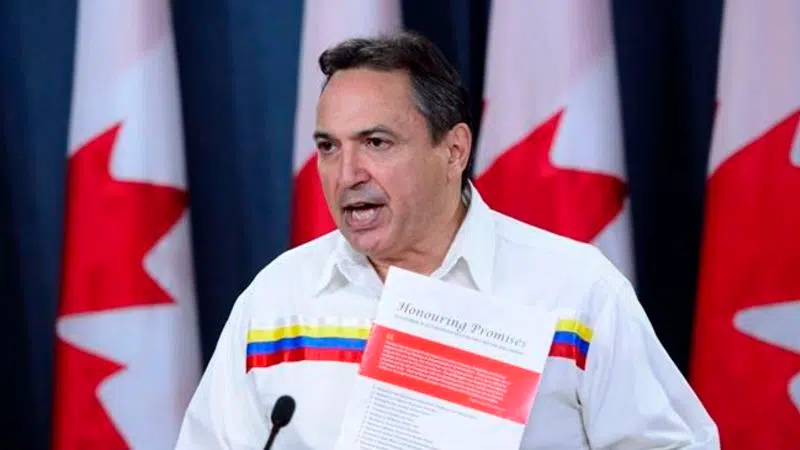
AFN outlines First Nations election priorities ahead of fall vote
OTTAWA — If Conservative Leader Andrew Scheer wants the support of more Indigenous voters in the federal election, he should disavow the approach of his predecessor Stephen Harper, says Assembly of First Nations National Chief Perry Bellegarde.
During an event in Ottawa Monday to launch a platform of First Nations election priorities, Bellegarde said progress has been made on key issues important to Indigenous and First Nations people in Canada, including getting greater access to the prime minister and cabinet ministers under the Trudeau government.
Bellegarde said no prime minister before Justin Trudeau went to Assembly of First Nations national gatherings. Trudeau has attended three.
That’s why, when asked if Scheer should publicly declare he would take a different approach to First Nations issues from that of the former Conservative prime minister, Bellegarde said yes.

